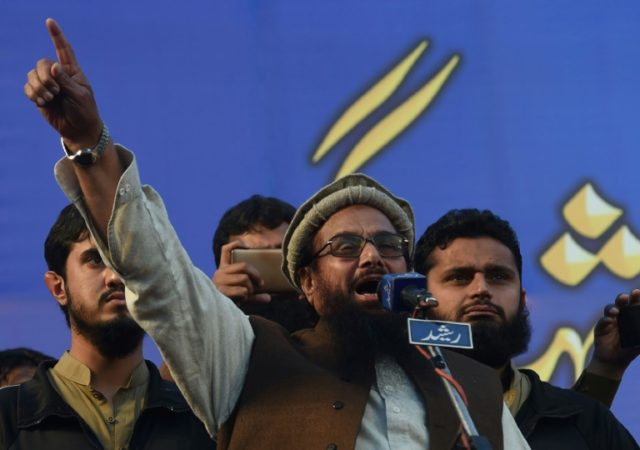There is only a “scanty residual presence” of jihadists left in Pakistan, claimed a top general who last week declared that Islamabad has extinguished all “organized” terrorist “sanctuaries” in the nation.
The general’s claim coincides with the ongoing suspension of $2 billion in U.S. security aid to Pakistan over Islamabad’s refusal to take decisive action against terrorist groups that carry out attacks in Afghanistan from Pakistan, namely the Taliban and its Haqqani Network allies.
Encouraged by the United States as a move to isolate Pakistan for not combating terrorist groups, the Financial Action Task Force (FATF), an international body focused on combating terrorism financing and money laundering, also blacklisted Islamabad recently, hindering the country’s access to global markets.
Despite the pressure placed on Pakistan, Gen. Joseph Votel, the head of U.S. Central Command (CENTCOM) charged with overseeing the Afghanistan war, indicated to the Senate Armed Services Committee early last week that Islamabad continues to lend support to jihadist groups.
Late last week, Maj. Gen. Asif Ghafoor, to head of the Pakistan military’s media wing, told Gulf News in an exclusive interview:
Pakistan has fought a successful war against terrorism. … Whereas there are no more organized sanctuaries, for elimination. Of [the] remaining disorganized scanty residual presence of militants, Operation Raddul Fasaad, a largely intelligence-based operation is in progress.
“There are no organized terrorist sanctuaries inside Pakistan anymore. Pakistan has repeatedly conveyed the above stance to U.S. authorities. Present violence inside Afghanistan should not be linked to Pakistan,” the top Pakistani general later stressed.
Although the Pakistani troops have allegedly eliminated the terrorists, Islamabad has maintained more than 200,000 troops at the restive Federally Administered Tribal Areas (FATA) located along the country’s border with Pakistan, noted the Pakistani officer.
“This deployment [to FATA] is to continue despite successes inside Pakistan as [the] threat continues to reside inside Afghanistan not due to lack of will but lack of capacity of the Afghan forces,” the top general acknowledged.
Gen. Ghafoor’s comments echo assessments of the Afghan National Defense and Security Forces (ANDSF).
Since 2001, the United States has invested about $75 billion on developing the ANDSF, which includes police and army units, but the force continues to suffer from capability lapses, according to the U.S. Inspector General for Afghanistan Reconstruction (SIGAR), a watchdog agency.
“To safeguard [its] own success, Pakistan has started to fence entire [1,600 miles] length of Pak-Afghan border and construction of new forts/posts along the border to deny free cross-border movement of terrorists,” noted the Pakistani general.
Pakistan and Afghanistan have long accused one another of supporting terrorism in the South Asia region.
U.S. and Afghan officials have determined that Pakistan lends support to Taliban and its allies, namely the Haqqani Network, which the Pentagon considers the most significant threat facing American troops and their allies.
However, Islamabad denies the allegation.
Referring to U.S. President Donald Trump’s decision to suspend security assistance to Pakistan, Gen. Ghafoor told Gulf News:
Main US concern is alleged inaction against Haqqani Network. Pakistan has operated against terrorists of all hue and color including the Haqqani Network. Earlier, till 2014, Pakistan focused on operations against Tehreek-e-Taliban Pakistan [TTP] and targeted Haqqani Network during Operation Zerb-e-Azb, [from] 2014 onwards.
The general alleged that the terrorist problem in Pakistan is a result of spillover violence from the Afghan war.
Since the war began in October 2001, the United States has provided Pakistan nearly $33 billion in aid to deal with its terrorism issues.
Gen. Votel stressed that Pakistan continues to back terrorist groups that operate in Afghanistan, telling Senators last week, “Having sanctuary in Pakistan or having support from other actors in the region certainly is an aspect of the Taliban’s success here.”

COMMENTS
Please let us know if you're having issues with commenting.